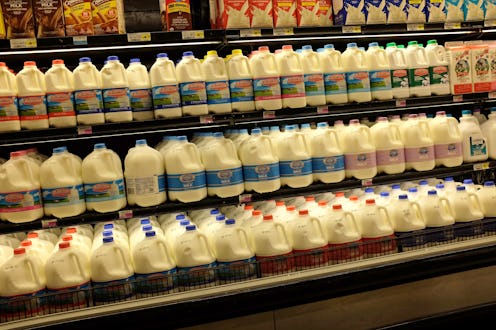Life
How To Tell If Milk Has Gone Bad

Nearly everyone has experienced the situation: you start to make some mac and cheese, but by the time your noodles are finished you open your refrigerator door, only to realize that you don’t quite remember when you bought that carton of milk. So, in order to salvage that would-be pot of mac and cheese, it’s important to figure out how to tell when milk is expired. There would be no greater tragedy than mistakenly stirring a curdled cheese sauce in with your pasta.
Milk is one of those foods that you should not eat past the expiration date. You just don’t want to do it. Not only will it smell bad and taste horrific, it can also give you food poisoning. If you truly can’t tell if a carton of milk has gone bad, you’d rather be safe than sorry. Toss it out and make a bodega run for a fresh pint, and next time make sure you buy a smaller carton so you can use it up before it goes bad.
In order to salvage that mac and cheese, follow these tips for determining whether your milk has gone bad or not. Be careful of expired dairy, and learn how you can decrease your risks of coming across spoiled milk.
Check The Expiration Date
If the expiration date on the milk has not yet passed, you should be in the clear. According to the Dairy Council of California, milk can still be good past its expiration date only if it has been kept in the body of your refrigerator at 38 to 40 degrees Fahrenheit. Milk can also be frozen if you buy a large quantity that you don’t plan on using all at once. If you still have hesitations before pouring out a glass, it’s also important to trust your senses.
Check Out Its Texture And Smell
If milk doesn’t smell right, then it’s best to just pour it down the drain. An unusual texture could also show that something’s gone wrong, as could a yellowish tinge. If it seems spoiled, it most likely is — testing it out isn’t worth the risk.
Be Careful With Raw Milk
The FDA warns against health risks of raw milk — milk that isn’t pasteurized to kill bacteria. Because this type of milk (which is more likely to be purchased at a farmers’ market than a grocery store) doesn’t have that extra protection, be careful about checking for its freshness frequently, if you choose to buy it in the first place.
Images: Joe Raedle/Getty Images; Giphy (3)